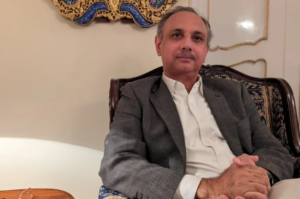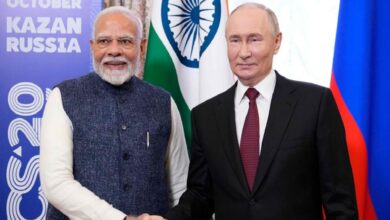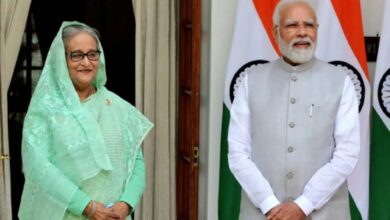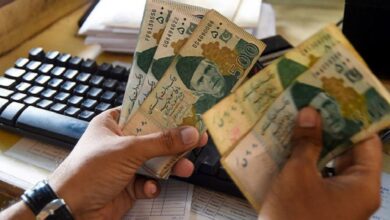From Elite Roots to Defying Dynastic Past: Pakistan’s Omar Ayub Khan Emerges as PTI’s Steadfast Leader
PTI leader Omar Ayub Khan in his house in Islamabad
In the aftermath of Prime Minister Shehbaz Sharif’s tumultuous victory speech in Pakistan’s parliament, attention turned to Omar Ayub Khan, a prominent figure in the opposition benches. Sporting the red-and-green scarf of his Pakistan Tehreek-e-Insaf (PTI) party, the 54-year-old politician invoked Shakespeare’s Hamlet, declaring, “There is something rotten in the system of Pakistan today.” While accusations against the military establishment dominated his rhetoric, Omar Ayub’s journey from an elite military family to a defiant PTI leader signals a departure from his dynastic past.
Omar Ayub Khan, the grandson of General Ayub Khan, who imposed martial law in 1958, is carving a unique path within Pakistan’s political landscape. An adventure sports enthusiast with a passion for aviation, Omar has transitioned from being a party-hopper, representing different factions in elections until 2018, to becoming a steadfast PTI loyalist.
His pivotal moment came during Imran Khan’s ousting through a no-confidence motion in 2022, a move PTI attributed to military interference. Omar, entrusted with organizing a protest march, faced a brutal crackdown, solidifying his position as a PTI leader. His family’s storied military background, including his father’s political career, took a backseat as images of his bruised body circulated, emphasizing his alignment with PTI’s narrative.
Omar Ayub’s political trajectory includes stints with various parties, including a term as a cabinet minister under General Musharraf’s rule. His pragmatic approach and allegiance to PTI emerged as key characteristics, culminating in his pivotal role in the party’s opposition stance. While critics question the motives behind his political switches, allies see a seasoned politician adapting to a shifting political landscape.
As PTI’s parliamentary face, Omar Ayub navigates the delicate balance of challenging the military’s role while maintaining a cautious approach. Despite family ties with the military, he asserts his commitment to parliamentary and democratic processes. His decision to remain in opposition, despite PTI’s electoral success, reflects a strategic move to influence politics within the established framework.
With Imran Khan’s imprisonment and PTI facing challenges, Omar Ayub Khan’s loyalty and resilience play a crucial role. As the party’s prime ministerial candidate, he emerges as a symbol of continuity amid turmoil, signaling a potential new chapter in his family’s political history. Whether defiance or necessity, Omar Ayub Khan’s trajectory underscores the complexities of Pakistani politics and the evolving dynamics within the PTI.





